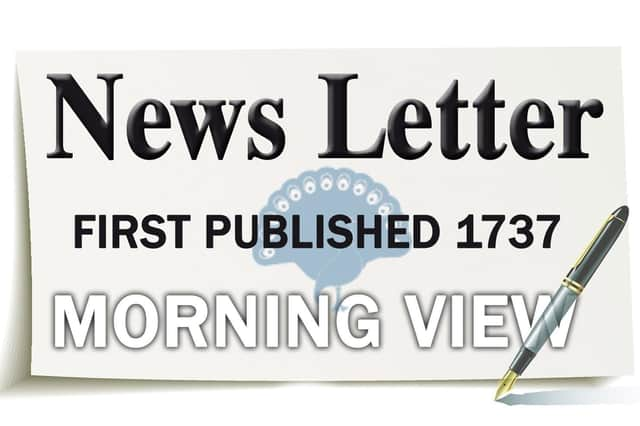Editorial: The Middle East war is now a new political wedge in Northern Ireland


It might seem absurd to say that the war in the Middle East impacts on the return of Stormont, yet it almost does.
The assembly in Northern Ireland has survived power sharing between a Protestant fundamentalist unionist preacher and a former IRA terrorist, so ought to be able to withstand any divisions.
Advertisement
Hide AdAdvertisement
Hide AdAnd no doubt a time will return in which bitter political foes are able to work together. But the divisions over Israel and Palestine have driven a wedge in countries around the western world, and raised profound questions about matters such as immigration and multi-culturalism and the stability of society. That stability will be tested next weekend if major anti Israel marches take place in London today week, on Armistice Day. Already there has been great anger that pro Palestinian protestors, many of whom are perceived as Islamic extremists, indeed many of whom are Islamic extremists, placed a protest stand right up against the Cenotaph in Whitehall.
There have also been huge tensions in America over the war that has followed the Hamas mass murder of Jewish civilians when terrorists crossed the border into Israel, where they killed more than 1,000 people of all ages. But in NI the divisions come on top of a bitter pre existing divide. Sinn Fein’s approach to it all has been horrifying. From the first news of the massacre its politicians were pointing to pro Palestinian symbols. While they did not condone Hamas, they failed to condemn it unequivocally. And since then their anti Israeli focus has been total, now including an extremist demand for Israel’s ambassador to Ireland to in effect be expelled.
Nationalist Ireland has been less strident in its attacks on Israel, but only slightly less so. President Higgins weighed in with a one-sided statement this week and the Taoiseach Leo Varadkar has accused Israel’s response of being one of revenge. Does anyone in Washington and London notice all this, and think again about the fact that all the pressure is on unionists to work with Irish politicians of such views?